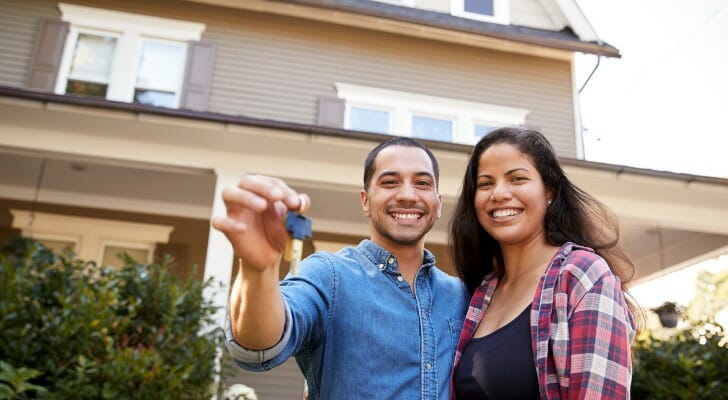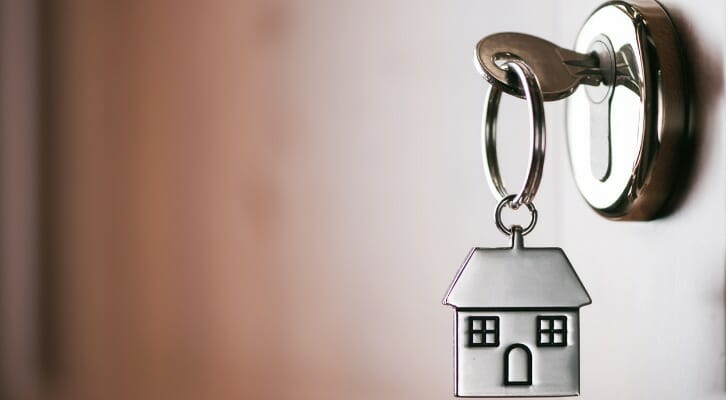Thinking about joining the eight million people who call Virginia home? Before you buy a home in Old Dominion, you may want to consider some of the mortgage programs that make it easier to get a mortgage. Many are specifically built for first-time homebuyers. Options from both the federal and Virginia state governments help make homeownership more accessible and affordable. If you need help, consider looking over the options listed below and consider working with a financial advisor to help decide which is best for you.
Federal First-Time Homebuyer Programs
Before we go through the programs designed specifically for Virginia residents, we should discuss a handful of national programs that any first-time homebuyer can access. Make sure to examine both federal and state programs when conducting your mortgage search.
FHA Loans
Pros – Low down payment
– Flexible credit approvalCons – Larger down payment needed for those with a lower credit score Eligibility – At least 3.5% of the home’s purchase price upfront
– FICO® credit score of at least 500
– Debt-to-income ratio <43%Best For – Anyone without sufficient savings to cover a down payment
The U.S. Federal Housing Administration insures FHA loans, but you’ll need to apply through an outside lender. They’re a great option for anyone that lacks the upfront funds needed to purchase a home. While conventional loans call for a 10% to 25% down payment, you’ll only need to put down 3.5% with an FHA loan.
You’ll need a credit score of at least 580 to access the 3.5% down payment. If your score falls between 500 and 580, you’ll need to make closer to a 10% down payment. Even with a credit score requirement, FHA loans are one of the easiest federal programs to qualify for.
VA Loans
Pros – Very low down payment
– No private mortgage insurance requirement
– Low closing costsCons – Application process can be drawn out
– Requires VA fee paymentEligibility – Must be a current or former military member, spouse or another beneficiary
– FICO® credit score of at least 620Best For – Veterans earning a low monthly income
The Department of Veterans Affairs backs VA loans to help military families secure a mortgage even in financially trying times. Many veterans don’t have adequate income or savings to afford a typical 20% down payment, so VA loans come with a zero down payment feature. Plus, with the government backing part of your risk, you won’t need private mortgage insurance (PMI), which is usually obligatory and can be expensive. Closing costs are also lower than they are with conventional loans and other mortgages.
In most situations, you need a credit score of at least 620 to secure a VA loan. You also need to pay a VA fee, which ranges anywhere from 1.25% to 2.4% of your home’s value depending on whether or not you make a down payment.
USDA Loans
Pros – No down payment
– Flexible credit approvalCons – Only available to those that don’t qualify for a conventional mortgage Eligibility – Adjusted household income must fall within 115% of the area median income for most types of USDA loans
– Home must be in a qualified areaBest For – Low- to moderate-income individuals willing to live in a rural or semi-rural area
Legally known as a “Section 502 Single Family Housing Guaranteed Loan Program,” the United States Department of Agriculture (USDA) started backing USDA mortgages to attract new homebuyers to rural and semi-rural areas.
In most cases, USDA mortgages completely eliminate the need for a down payment. Applicants with a lower credit score may need to make a down payment, though these are only around 10% of your home’s value. That’s still just half the typical down payment requirement. To qualify for a guaranteed USDA loan, the most common type, your household income can’t exceed 115% of the median income for the area. And you must prove that you have been unable to get a conventional loan.
Good Neighbor Next Door Program
Pros – Flat 50% discount on the home’s value Cons – Not available for most people or in most areas Eligibility – Must be a firefighter, police officer, emergency medical technician or teacher
– Must remain in the home for at least three years after purchaseBest For – Teachers and public servants with little savings
The Good Neighbor Next Door Program from the U.S. Department of Housing and Urban Development (HUD) is more of a discount than a loan. It allows certain public servants to pay only 50% of the purchase price to buy a home. Participants are encouraged to get a conventional, VA or FHA mortgage to pay for the home, but they can also pay cash.
To qualify, the home must be located within a HUD-designated “Revitalization Area.” Applicants must also agree to make the home their primary residence for at least three years. Once those three years are up, though, you can sell the home and earn full equity for the sale.
Fannie Mae/Freddie Mac
Pros – Low down payment
– Flexible credit approval
– Several loan styles availableCons – Higher interest rates than other federal programs Eligibility – Income requirements dependent on the property location Best For – Anyone who can’t afford the upfront costs of homeownership and doesn’t qualify for other federal programs
Freddie Mac and Fannie Mae are mortgage lenders created by the federal government. They offer a number of first-time homebuyer options with similar benefits.
The HomeReady® loan from Fannie Mae requires down payments as low as 3%, making it a great choice for anyone who’s strapped for cash, has a credit score of at least 620 and makes an income at or near the U.S. median. With a HomeReady® loan, you must have private mortgage insurance at the time of purchase. Luckily, you can cancel it once you’ve accrued 20% equity in your new home.
The Home Possible® mortgage from Freddie Mac meanwhile requires just a 3% down payment, which is why you might see it referred to as a 97% LTV loan. LTV means “loan-to-value,” or the percentage of your home’s value that will be covered by the loan. A Home Possible mortgage offers a few different choices, with 15- to 30-year fixed-rate and 10/1, 7/1, 5/5 and 5/1 terms available. It also comes with cancellable mortgage insurance.
NADL
Pros – No down payment
– Flexible credit approval
– No private mortgage insurance requirement
– Usually comes with low closing costsCons – Only available in select areas for select individuals Eligibility – Home must be in a qualified area Best For – Native American veterans without significant savings
A Native American Direct Loan (NADL) is another mortgage program backed by the Department of Veteran Affairs. It boasts a set interest rate currently at 4.5%, though that is subject to change based on market fluctuations. Like a VA loan, no down payment is necessary.
You don’t need a strong credit history to qualify for a NADL. You also won’t have to purchase private mortgage insurance, a benefit that extends from normal VA loans as well. Most NADLs even come with significantly lowered closing costs.
Virginia First-Time Homebuyer Programs

If you’re buying your first home in Virginia, you’ll want to know about the Virginia Housing Development Authority (VHDA). It offers 30-year fixed-rate loans through a statewide network of approved mortgage lenders in addition to forgivable down payment grants and federal tax breaks. Some of these programs even eliminate the need for a down payment.
All loans have income and purchase price limits, which vary based on home location. The home must be your primary residence and you can’t have owned part or all of another home in the last three years. Lastly, you’ll need a credit score of at least 620 and must complete a homeownership education course.
VHDA Fannie Mae HFA Preferred No MI
Pros – Very low down payment
– No mortgage insurance requirement
– Potential to combine with Down Payment Assistance and a Mortgage Credit Certificate to save even moreCons – Higher interest rates than other state programs Eligibility – FICO® credit score of at least 660
– Income and purchase price limits dependent on home location
– Must complete homeownership education courseBest For – Homebuyers looking to “move up”
The VHDA has struck a special deal with Fannie Mae with this program, which is designed for first-time and repeat homebuyers with a credit score of at least 660. Down payment requirements start at just 3%. The affordable monthly payment and the discounted upfront cost are great, but it’s the insurance benefit that really shines.
There’s no mortgage insurance requirement with this program, hence the “No MI” in the name. Plus, when combined with the VHDA down payment assistance grant, homebuyers actually only have to provide 1% of the home’s value upfront.
FHA Plus Loan
Pros – Up to 100% financing
– Potential to combine with Down Payment Assistance and a Mortgage Credit Certificate to save even moreCons – Slightly higher interest rate than other VHDA loans
– Must adhere to FHA and FHA Plus requirementsEligibility – FICO® credit score of at least 620
– Income and purchase price limits dependent on home location
– Must complete homeownership education courseBest For – Anyone with very little savings that feels confident they can make monthly payments
Standard FHA loans are great for first-time homebuyers, but the VHDA has found a way to make them even better. The FHA Plus program adds a second mortgage designed to cover the upfront costs of home ownership. Qualified applicants can secure up to 100% financing, covering the full 3.5% or 5% down payment usually required with an FHA mortgage.
Borrowers just need a credit score of at least 620, though a credit score above 680 unlocks the best perks. Just keep in mind that the combined total of the loans cannot exceed VHDA purchase price limits. County income limits still apply.
VHDA Rural Housing Services (RHS)
Pros – No down payment
– Low mortgage insurance requirement
– Potential to combine with a Mortgage Credit Certificate to save even moreCons – Only available for certain property types Eligibility – Home must be in a qualified area
– Home must be built within 10 years
– FICO® credit score of at least 620
– Income and purchase price limits dependent on home location
– Must complete homeownership education courseBest For – Low- to moderate-income individuals willing to live in a rural or semi-rural area
The VHDA’s twist on USDA loans, known as Rural Housing Services, extends availability to any home that was built within the last 10 years. Just as with the standard USDA loan, qualified applicants do not have to provide any down payment and homes must be in rural areas.
With the VHDA version, homebuyers can qualify for low monthly payments, low mortgage insurance and a discounted federal tax bill in addition to 100% financing. Virginia’s standard income and purchase price limits apply.
Down Payment Assistance Grant
Pros – Up to 2.5% of a home’s purchase price to help fund a down payment
– No repayment is required
– Potential to combine with a Mortgage Credit Certificate to save even moreCons – Strict eligibility requirements Eligibility – VHDA loan participant Best For – Homebuyers using VHDA programs that need significant help toward upfront homeownership costs
The Down Payment Assistance Grant from VHDA provides up to 2.5% of a home’s value to help cover the down payment. So long as you meet all the requirements, you won’t ever have to pay the loan back. The exact size of the grant will depend on the VHDA program you are combining it with.
The same goes for the minimum credit score requirements, which start at 620. Homebuyers must also earn less than their local income limit. The good news? If you qualify for this grant, you’re also eligible to receive the VHDA Mortgage Credit Certificate.
Granting Freedom
Pros – Up to $8,000 to modify a home for increased accessibility Cons – Strict eligibility Eligibility – Must be a current or former military member, spouse or another beneficiary Best For – Military members or veterans with disabilities
The VHDA partnered with the Virginia Department of Veteran Services to create the Granting Freedom award. This affords active and retired military servicemen and women who were disabled in the line of duty up to $8,000 for home modifications.
You can use funds to widen doorways, adding wheelchair ramps, install bars in the bathroom or make any other changes that help qualified participants feel more at home. They are available on a first-come, first-served basis.
VHDA Mortgage Credit Certificate
Pros – Reduced federal tax bill Cons – Strict eligibility requirements Eligibility – VHDA loan participant Best For – Homebuyers using VHDA programs that can’t afford both tax bills and mortgage payments on their own
Anyone with a VHDA loan should consider filing for the Mortgage Credit Certificate (MCC) with an approved lender. An MCC allows homeowners to claim 20% of their annual mortgage interest as a dollar-for-dollar federal tax credit. Best of all, it is valid for the life of the loan so long as you live in your home.
An MMC doesn’t cost anything for the homebuyer and could save thousands of dollars in saved federal tax payments. Pair these benefits with those of your VHDA loan and you could save some serious cash.
The Bottom Line

If you’re looking to buy a home in Virginia, there are plenty of programs available to help you. Whether you’re needing less difficult eligibility requirements, downpayment assistance or just better interest rates you may be able to find what you need in a program backed by either the federal government or the state of Virginia.
Tips to Estimate Your Future Mortgage Costs
- No matter where you buy a home, the purchase will impact your finances in a big way so you may want to find a financial advisor to prepare. Finding a financial advisor doesn’t have to be difficult. SmartAsset’s free tool matches you with up to three financial advisors who serve your area, and you can interview your advisor matches at no cost to decide which one is right for you. If you’re ready to find an advisor who can help you achieve your financial goals, get started now.
- A down payment isn’t the only upfront cost of homeownership. Don’t forget that you will also need to cover moving and closing costs, as well as other miscellaneous expenses.
Photo credit: ©iStock.com/FabioBalbi, ©iStock.com/monkeybusinessimages, ©iStock.com/scyther5
